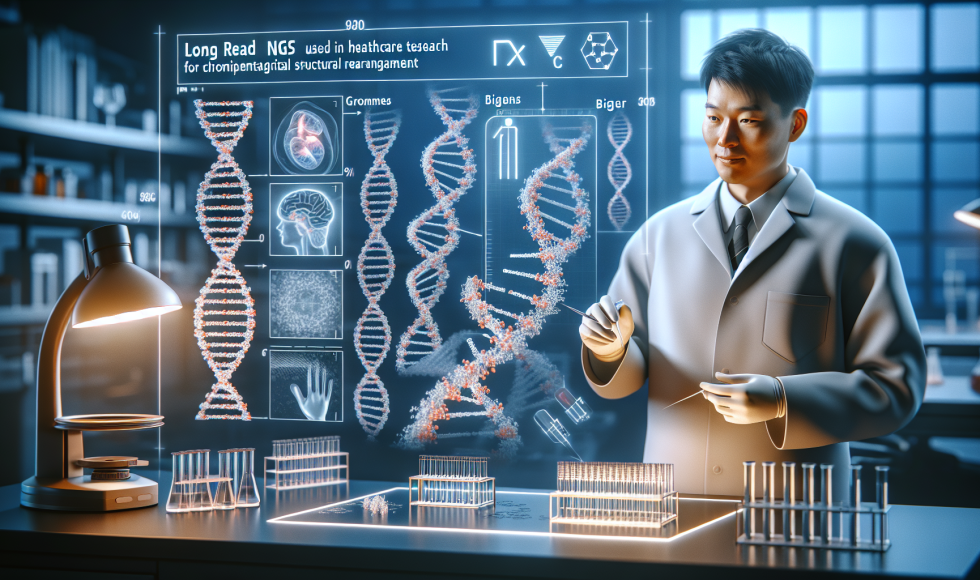Tonight, I watched the London Calling 2019 session by Anna Schuh from the University of Oxford in the UK. The title of the presentation was “Global applications of nanopore sequencing in clinical haematology.” Schuh explained that blood cancers are challenging to treat and that patients would benefit from precision medicines. Chronic myeloid leukemia was the […]
Karen Miga from the University of California, Santa Cruz, presented at London Calling 2019 on “Telomere-to-telomere assembly of a complete human X chromosome.” Miga is part of the Telomere-to-Telomere Consortium. They spoke about the gaps in the human genome. The challenge of assembling repeat regions may be tackled with ultra-long reads. Using the Josh Quick […]
Tonight I watched Jeroen de Ridder from the University Medical Center Ultrecht in the Netherlands present at London Calling 2019. They spoke about “Cyclomics: ultra-sensitive nanopore sequencing of cell-free tumor DNA.” Ridder spoke about the importance of detecting the recurrence of cancer in patients. Common diagnostics may not be suitable, and liquid biopsies of the […]
Dan Turner from Oxford Nanopore Technologies presented at London Calling 2019 on “The real Simon Pure.” I was intrigued by the title and wanted to learn more. Turner is part of the ONT Applications Team and explained the different groups represented, including the VolTRAX2 team. The real Simon Pure title, Turner explained, is from a […]
Tonight, I watched the London Calling 2019 session by Irina Chelysheva from the University of Hamburg in Germany. The session’s title is “Small, modified, and highly structured: the challenge of tRNA sequencing.” Their lab is interested in sequencing tRNA because it is challenging. The major problems for sequencing, Chelysheva noted, include the short length of […]
Saili Johri from San Diego State University presented at London Calling 2019 on “Unraveling shark secrets: sequencing genomes and microbiomes for research and conservation.” Johri explained how they are using the MinION to conserve sharks and rays. They emphasized how sharks are apex predators important for oceanic ecosystems and maintaining coral reefs. Sharks make direct […]
Mollie Schubert from Integrated DNA Technologies spoke at London Calling 2019 on “Characterizing large HDR insertions by CRISPR/Cas9 using nanopore sequencing.” They use CRISPR in cells to mediate editing. The IDT team then uses Nanopore sequencing. CRISPR-Cas9 genome editing uses RNA guides. Schubert has been delivering CRISPR-Cas9 complexes to cells. Different applications can be used […]
Chris T.L. Chan from the Hong Kong Sanitorium & Hospital in China spoke at London Calling 2019 on “Long-read NGS guided preimplantation genetic testing for chromosomal structural rearrangement.” Chan presented a clinical scenario. They explained that short-read sequencing allowed the analysis of copy number variation from blood samples. Loss of copy can be identified with […]
Tonight, I watched Kimmo Palin from the University of Helsinki present at London Calling 2019 on “Retrotransposon variation in human genome and tumorigenesis.” They began by discussing retrotransposons and describing them as “copy-paste elements” in the genome that copy themselves with an RNA intermediate. They range in size between 300 bp and 6,000 bp. LINE1 […]
Anna Dolnik from the Charite University Medical Center in Berlin, Germany, presented at London Calling 2019 on “Genomic profiling in acute myeloid leukemia with complex karyotype.” They presented data on the survival of over 5,100 patients with acute myeloid leukemia (AML). The WHO in 2016 revised the classification of AML. A newly diagnosed AML patient, […]










